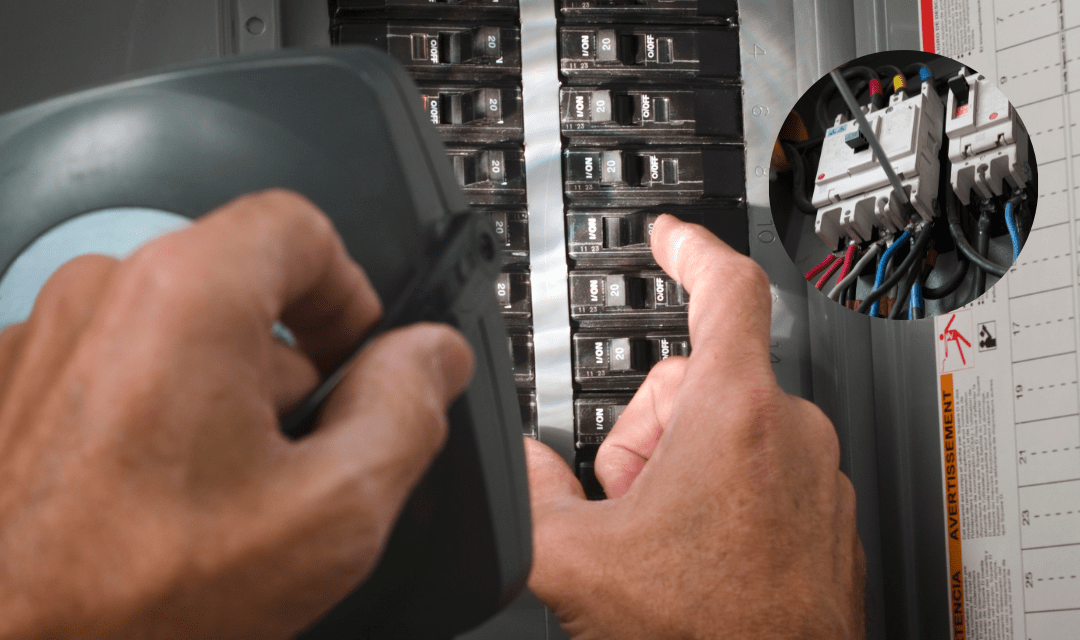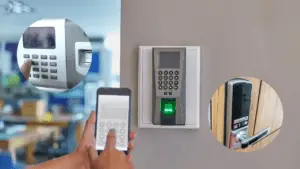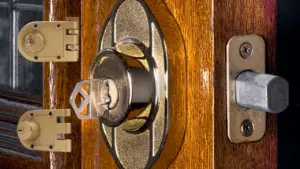Introduction
A circuit breaker is an electrical controller which is outlined to safeguard an electrical circuit from impairment caused by overcharge or short circuit. Its fundamental function is to break in current flow after precautionary relays to determine a faulty electrical connection or electricity surge.
When a circuit breaker when trips, it shuts off the electrical circulation in order to prevent the circuit current from burning and overheating. It is a protection that assists to avoid damage and electrical fires.
If circuit breaker tripping occurs often, there is a greater reason underlying such situation that you have to address, lest damage caused by fire may ensue in the process or destruction of appliances may also transpire.
Kindly do not disregard if your circuit breaker keeps on tripping. It will be helpful to have it checked by a qualified electrician before anything else.
Necessarily, this may be a signal that one of your circuit breakers is getting overcharged on an orderly basis. These breakers can only hold up to a certain amount of voltage.
If the voltage is higher than the standard, there is a possibility that electrical fire may occur any moment. This is, as well, the reason why the circuit breaker trips [high voltage surge].
Under usual circumstances, this electrical tools shut off the movement of electricity in your houses. Thus, it halts the surge of electricity which can cause damage to appliances or may produce electrical fire because of overheating.
Keep Calm
A power interruption from a circuit breaker that just tripped can be really distracting and annoying. However, still, it is essential to note that your circuit breaker provides an important purpose.
A circuit breaker avoids high amounts of electricity flowing from overheating and overloaded wires. If the wires get really hot, they can begin an electrical fire in your houses.
If your circuit breaker regularly trips, you just have to stay calm and call the nearest electrician in your area to solve the possible causes of your circuit breaker tripping.
What to do if a breaker keeps tripping?
When a heavy and rushing of energy overcharged a circuit, such as in the case of a lightning attack or heavily emphasized outlet illustrating too much current, the breaker’s protection is to switch the circuit automatically to the off spot.
It does this axiomatically. You can obtain the power back by these three steps:
First, you have to turn off all lights and appliances that are strained by the power interruption. Switch everything OFF, at the very least. If your Television is turned off but has no manual OFF switch, you have to unplug it.
Next, the best thing to do or perform is not to have electronic appliances turned ON when the circuit breaker is transformed from OFF to ON. If not, further damage to house or household appliances or injury to person may possibly happen.
The immediate surge of power could negatively affect your personal computer, electric fan, or gaming devices, for instance. Next thing to do is to search for your circuit box and look for the off position of the breakers.
If the breakers have a switch OFF, some of them have a red or orange color visible. Then, you have to switch the breaker from OFF position to ON position.
Last, just turn ON the appliances and devices you just turned OFF in the earlier step, and everything will be fine.
If your circuit breaker is still tripping, you have to call an electrician and make sure that you prevent yourself from any danger.
Can a tripped breaker cause a fire?
This will suggest an affirmative answer. A circuit breaker safeguards an electrical circuit from injury and more damage by instinctively shutting off the power to the circuit.
Nonetheless, if the circuit breaker fails to accommodate the electricity surge, the electric appliances may sustain damage coming from the high voltage influx which the breakers cannot handle immediately.
Such voltage overflow, in an uncontrollable level, therefore, can lead to a fire. Short circuits are the main reasons why electrical fires occur in the affected houses.
While it is true that some of the burning that occurred may start at the back of your walls, yet, in some cases, it creates its own manner to run through your outlets.
Faulty wirings in your residence are the reasons of the sparks in wirings and appliances. This can immediately develop in little flames that will discolor the outlets. If not immediately addressed, unfriendly fire can result.
Why does my breaker suddenly keep tripping?
There are three common reasons why the circuit breaker trips, and they are:
- the overloaded circuit;
- the short circuit;
- and the ground fault.
Overload circuit is the most common reason why the breaker trips. It normally occurs when you are operating too many power-consuming devices and instruments on the very same circuit simultaneously.
The electricity demand or load that the circuit is running will be too high. Therefore, breaker trips to avoid overheating and overloading. With a small detective effort, you can usually find the device that is the reason of the issue.
Before you turn over the circuit back ON, you have to take note of what appliances are operating when the breaker tripped. Short circuit, on the other hand, is more dangerous possible reason of a tripped breaker.
A short circuit occurs when a hot or active wire joins either an extra hot wire or a neutral wire in one of your outlets. This effects in a large current flow, generating more heat than the circuit can hold.
In ground fault, safety is supreme in dealing with any electrical matters, whether how big or small it is. It exists when there is an interruption in the low-resistance grounding track from a tool or electrical wirings.
Consequently, you should not attempt to repair any electrical concerns except when you’re sure that it’s safe.
What are signs of a bad breaker?
Learning how to determine whether your circuit breaker is potentially a bad breaker will reduce the possible safety hazards.
Frustrations and continuous recurring electrical issues and concerns that might harm you and your family will be minimized.
By knowing the signs that you must keep on your radar, you can better protect expensive and important appliances, your electrical system in your entire house, and most essentially, your family from the potential injuries and dangers.
Here are the signs of a bad circuit breaker in your house:
- Detecting blinking or flickering of lights inside your domicile.
- Encountering bad performance or power outage with your appliances.
- Regularly changing of light bulbs since they are easy to burn out.
- Get a sniff of an electrical burning odor coming from your panel or directly from the breaker.
- Exposure of physical damage such as melted or burnt wirings.
- Struggling with recurring and devastating circuit breaker trips.
- Having an outdated circuit breaker which is not capable of providing enough power to your appliances.
- Experiencing heat originated from your circuit breaker when it is having some electric issues.
How hard is it to replace a breaker?
Whatever the causes are, when a breaker has faulted, removing the old one and installing a new is the solution.
Circuit breakers are most of the time not that expensive and are very quick to replace as long as you have a little of understanding about electrical matters.
This is not an activity that everyone is comfortable doing since it engages working at the service panel with the requirement to safely remove the cover.
Although the procedure is not that difficult, it is easier and quicker as compared to other routine wiring projects.
In this case, the main power bus bars will be flaunted as you replace a circuit breaker with a new one.
There is a risk of serious danger, getting electrocuted, if you are not careful while replacing it.
When electricians change an old standard circuit breaker, it is necessary for them to take all the possible precautions to prevent any risk of harm.
Before you can start the replacement, you will have to know the brand, size, and type of the breaker you will be replacing.
Circuit breakers are exclusive to the manufacturer of the specific circuit breaker panel that you have. They appear in many different shapes, types, and sizes.
You should never change a breaker with one from a dissimilar breaker manufacturer.
Although they look the same, there are incompatibilities in tension, the way they attach in the holder of the breaker, and how intensely they ascend to the bus bars. You have to examine very carefully at the forepart of the circuit breaker
Closing
It has possibly happened to you before. Unexpectedly, the power is absent and you have no idea how it happened.
It is possible that you are using too many appliances at the same time, there is a storm that affected your electrical system, or you may have some faulty wirings.
Whatever the reason, we are certain that it happened at least once or twice to all of us, and it’s pretty annoying, right? Hence, it is best to understand what circuit breakers are for.
There are responsible to limit the level of current flowing on a circuit. Under normal scenarios, it does not exceed the standard level.
Breakers are intended to trip if too much amount of current runs through a circuit or if there exists a short circuit.
The circuit breaker itself is pretty long-lasting. So, it is hardly the root cause for a tripped circuit. In certain happenstance, there may be reasons why your breaker will not reset.
Although you have tried to and you failed to reset it, do not lose chance and hope. There is a possibility that you have not done everything to fix it. This will matter if your are comfortable fixing it by yourself.
Otherwise, you just have to call a qualified electrician. Safety is a must.




